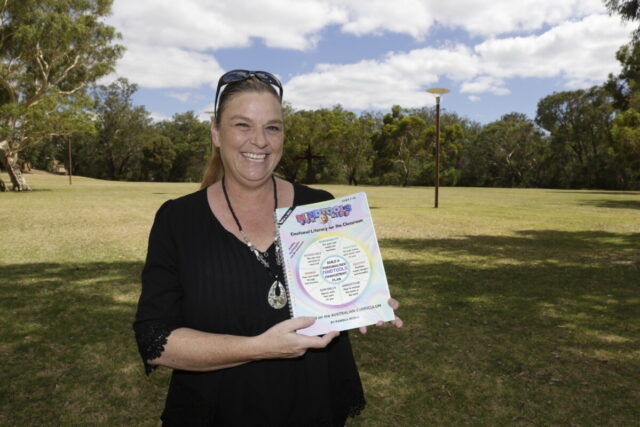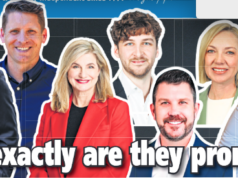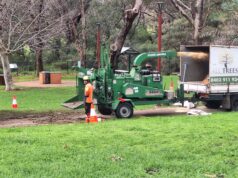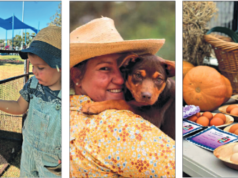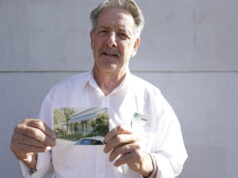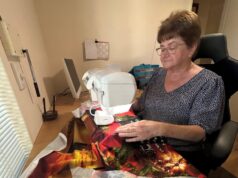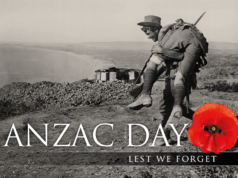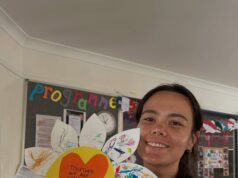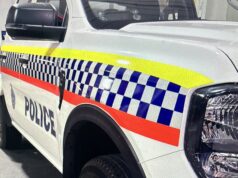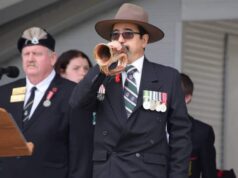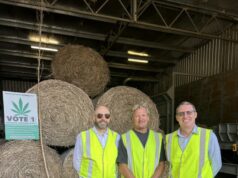It takes a deep well of resilience to rise again after repeated trauma.
It also takes bravery to confront your own battles with mental health in the midst of publicly-ingrained stigma.
But it’s a truly remarkable person who can take those lived experiences and use them to turn the tide for others.
Pamela Noble is doing just that.
For the past two years, the Camillo local has been drawing on her knowledge as a primary school educator and her years of lived experience to create a program for kids aged seven to 10 that teaches them the skills they need to regulate and manage their emotions and mind health.
“This has been so freeing for me – to bring my two worlds together – the trauma and the teaching,” she said.
Pamela was inspired to pass on the tools she’d collected in her ‘emotional toolbox’ during a course of bereavement counselling with Anglicare, after losing a loved one to suicide.
Suicide is an uncomfortable conversation to have with children, but one that is becoming increasingly necessary.
According to the Australian Bureau of Statistics, suicide is the leading cause of death for young Australians and has been labelled a national public health priority by the federal government.
The national peak body for suicide prevention has said that one in two young people are impacted by suicide by the time they turn 25.
And data from ‘Growing Up In Australia: The Longitudinal Study of Australian Children’ has found that approximately 17 percent of kids between the ages of 14 and 17 in the study had thought about taking their own life, 14 percent had planned a suicide, and around 10 percent had made a suicide attempt.
“Many young people who experience suicidality may not seek help and, where they do, other young people are the most likely source of support for those experiencing emotional problems. Therefore, comprehensive mental health literacy education, including recognising signs someone may be struggling, and how to talk about those thoughts/feelings and seek help could be a successful strategy,” the study’s findings concluded.
Pamela understands this implicitly.
“I want to use my voice, and my experiences to make a difference for these kids,” she said. “The only thing I can do is to give them the basic coping tools that I wish I’d learnt when I was a kid.”
Pamela has created a comprehensive program in ‘Emotional Literacy for the Classroom’, consisting of nine units complete with instructions, worksheets with activities, and samples.
Kids are prompted by ‘Eggy’ along the journey – an egg character with a seemingly hard but actually fragile exterior, and a gooey emotional centre.
The program has been developed in line with the requirements of the Australian curriculum to enable it to be a useful tool for teachers, with helpful suggestions to guide their interactions and responses.
“It’s not a treatment program, it’s not a diagnostic tool. It’s a program to show kids how to look after their minds the same way they look after their bodies,” she said.
“How do you prevent suicide? I don’t know, but I think this is a good place to start.”
Pamela is planning on approaching a range of education and care providers to pilot the program, including primary schools, foster carers, school chaplaincy programs, and university education programs.
She is also exploring avenues for grant funding, and has started a crowdfunding page to raise the funds to develop a pre-recorded workshop to accompany the already published book.
To support her campaign search for Mindtools for Kids in Kickstarter.
To find out more, visit mindtoolsforkids.com.au


